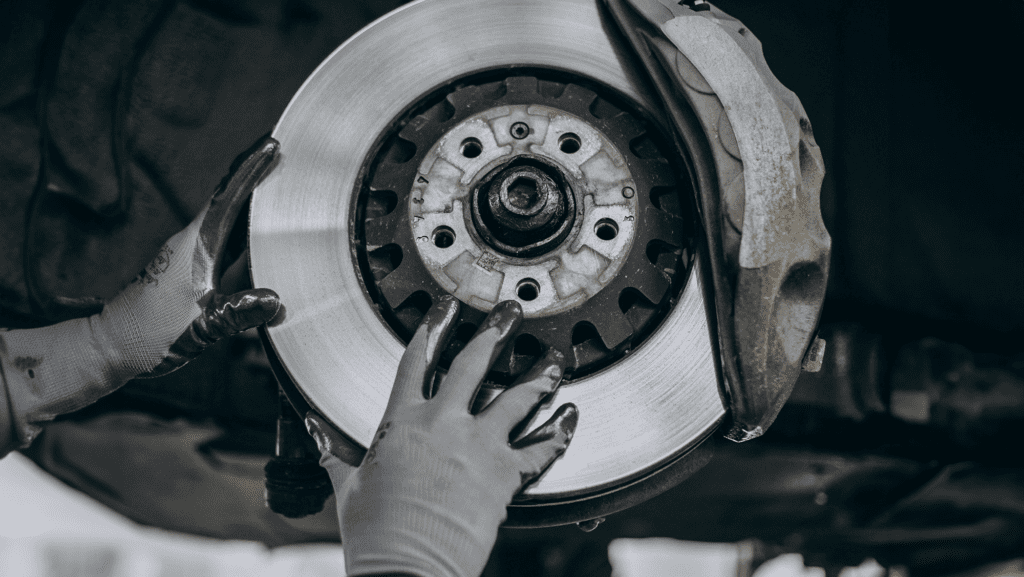The braking system of a vehicle plays a crucial role in ensuring safety on the road. Among the various components that make up this system, brake calipers are an essential part. In this blog post, we will discuss how long brake calipers last and how often they need to be replaced. Understanding the lifespan of brake calipers and knowing when to replace them can help maintain optimal braking performance and prevent accidents.
Understanding Brake Calipers
Brake calipers are a critical component of a vehicle’s disc braking system. They are responsible for clamping the brake pads against the brake rotor to create friction, which ultimately slows down or stops the vehicle. There are two main types of brake calipers: floating (or sliding) calipers and fixed calipers. Both types serve the same purpose but have slightly different designs and operating mechanisms.
Here’s a step-by-step explanation of how brake calipers function within the braking system:
- When you press the brake pedal, hydraulic fluid is pushed through the brake lines.
- The hydraulic pressure created by the fluid reaches the brake caliper, causing the caliper piston(s) to move.
- As the piston(s) move, the brake pads are pushed against the brake rotor.
- The friction generated between the brake pads and rotor slows down or stops the vehicle’s wheels.
Understanding how long brake calipers last and when they need to be replaced is crucial for maintaining the efficiency of your braking system and ensuring safety on the road. In the following sections, we will discuss factors that influence the lifespan of brake calipers and signs that indicate it’s time for a replacement.
How Long Do Brake Calipers Last?
The lifespan of brake calipers can vary depending on several factors, but on average, they last around 75,000 to 100,000 miles. However, it is essential to regularly inspect and maintain your braking system components, as some calipers may need replacement sooner than this range.
Factors That Affect the Lifespan of Brake Calipers
Several factors can influence how long brake calipers last. Some of these factors include:
- Driving habits: The way you drive directly affects the lifespan of your braking system components, including the calipers. Frequent hard braking, aggressive driving, or driving in heavy traffic can cause the calipers to wear out faster.
- Type of brake pads used: The type of brake pads you use can also impact the longevity of your brake calipers. Low-quality or incompatible brake pads can cause uneven wear on the caliper and rotor, leading to premature caliper failure.
- Weather conditions: Extreme weather conditions, such as high heat or cold temperatures, can affect the durability of brake calipers. For example, road salt used during winter months can cause corrosion in the caliper’s metal components, reducing their lifespan.
- Quality of manufacturing: The quality of the brake calipers themselves plays a crucial role in determining their lifespan. High-quality calipers made from durable materials and with proper engineering are more likely to last longer than cheaper, lower-quality options.
To ensure the optimal performance and longevity of your brake calipers, it’s important to regularly inspect and maintain your braking system components. By addressing any issues early on, you can help prevent more extensive damage and costly repairs down the line.
How Often Do Brake Calipers Need to Be Replaced?
As mentioned earlier, brake calipers generally last around 75,000 to 100,000 miles. However, it’s essential to regularly inspect your braking system and replace the calipers when necessary, rather than waiting for a specific mileage to be reached. This is because the actual lifespan of brake calipers can vary depending on factors like driving habits, environmental conditions, and the quality of the components.
When to Replace Brake Calipers Based on Mileage
While there isn’t a universal mileage-based rule for replacing brake calipers, it’s a good idea to start checking them for wear and tear once you hit the 75,000-mile mark. From then on, you should continue to inspect your braking system periodically to ensure everything is functioning correctly.
Signs That Indicate It's Time to Replace Brake Calipers
There are several signs that may indicate it’s time to replace your brake calipers:
- Uneven brake pad wear: If you notice that your brake pads are wearing unevenly, it could be a sign that the caliper is not functioning correctly and needs replacement.
- Leaking brake fluid: If you spot brake fluid leaking from the caliper, it’s a clear indication that the caliper seals have failed and require replacement.
- Reduced braking performance: If you experience a decrease in your vehicle’s braking performance, such as a spongy brake pedal or longer stopping distances, it could be due to a failing brake caliper.
- Vehicle pulling to one side when braking: If your car tends to pull to one side when you apply the brakes, it could mean that one of the brake calipers is not functioning properly.
- Visible corrosion or damage: Inspect your brake calipers for visible signs of corrosion or damage. If you find any, it’s time to replace the affected caliper.
If you experience any of these signs, it’s crucial to address the issue promptly to ensure the safety and performance of your braking system. Remember that replacing brake calipers is a part of regular vehicle maintenance and should be performed when necessary to keep your car running smoothly and safely on the road.
Experience Unmatched Brake Caliper Service at HEART Auto Care
Ensure your vehicle’s safety and peak performance with our exceptional brake caliper service at HEART Auto Care. Our team of certified technicians is committed to providing unparalleled care for your braking system, keeping you safe on the road.
Our comprehensive brake caliper service includes:
- Detailed inspection of your brake calipers for wear, damage, or corrosion
- Expert advice on whether a replacement is necessary
- Top-quality replacement parts for long-lasting performance
- Professional installation with meticulous attention to detail
At HEART Auto Care, your safety and satisfaction are our utmost priorities. Rely on our skilled technicians to keep your vehicle running smoothly and efficiently with our outstanding brake caliper service.
Don’t compromise your vehicle’s safety – schedule your appointment at HEART Auto Care today and experience the superior service we provide!
Wrapping Up: Brake Caliper Lifespan and Replacement Insights
Understanding how long brake calipers last and knowing when to replace them is crucial for maintaining the efficiency and safety of your vehicle’s braking system. To recap the main points discussed in this blog post:
- Brake calipers are a vital component of the disc braking system, responsible for clamping the brake pads against the rotor to create friction and slow down or stop the vehicle.
- On average, brake calipers last around 75,000 to 100,000 miles, but their actual lifespan can vary depending on factors such as driving habits, the type of brake pads used, weather conditions, and manufacturing quality.
- It’s essential to regularly inspect your braking system and replace calipers when necessary rather than waiting for a specific mileage to be reached.
- Signs that indicate it’s time to replace brake calipers include uneven brake pad wear, leaking brake fluid, reduced braking performance, the vehicle pulling to one side when braking, and visible corrosion or damage.
Being proactive about brake caliper maintenance and replacement can help ensure optimal braking performance and prevent accidents. Regularly inspect your braking system components and address any issues early on to keep your vehicle running safely and efficiently on the road.





